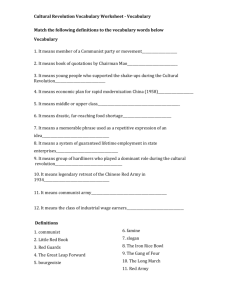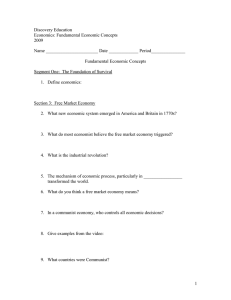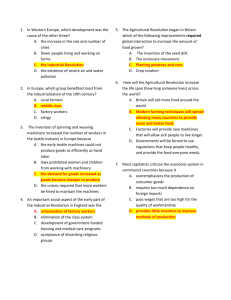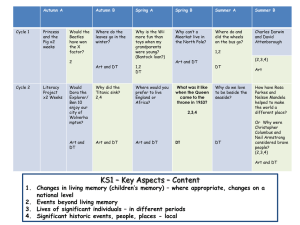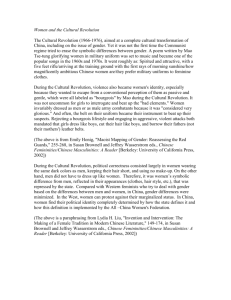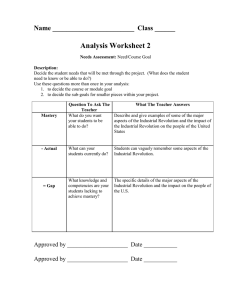and of the Chinese government sharply criticized the Great Proletarian... Revolution of the 1960s. Even though it was supported by... Activity 5. Great Proletarian Cultural Revolution
advertisement
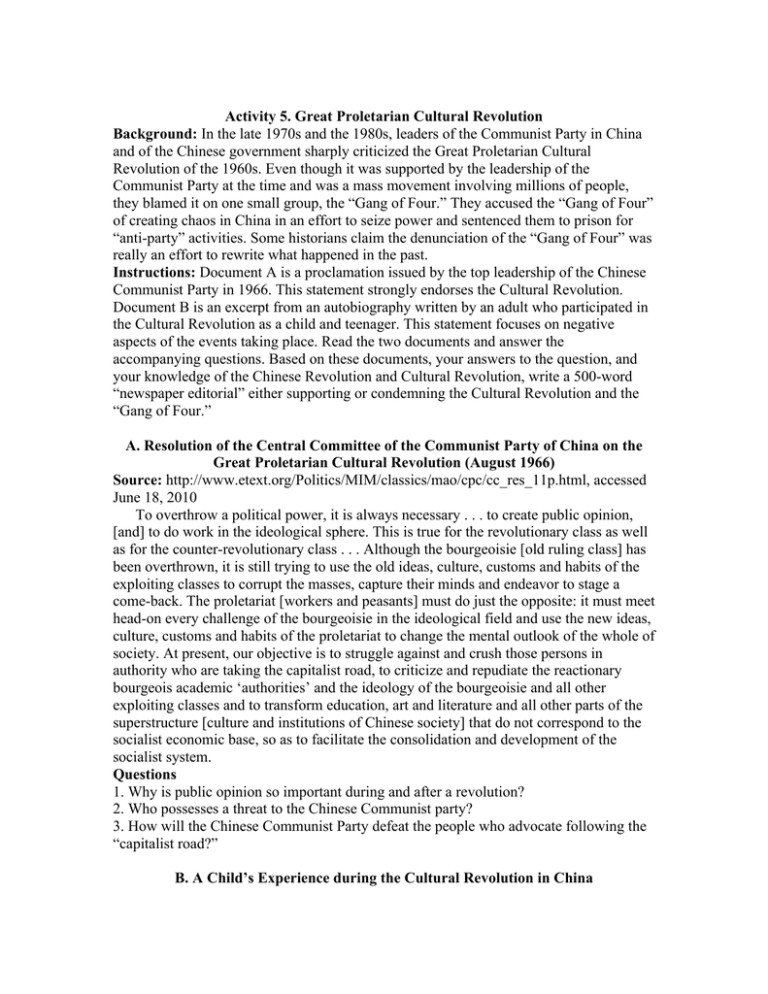
Activity 5. Great Proletarian Cultural Revolution Background: In the late 1970s and the 1980s, leaders of the Communist Party in China and of the Chinese government sharply criticized the Great Proletarian Cultural Revolution of the 1960s. Even though it was supported by the leadership of the Communist Party at the time and was a mass movement involving millions of people, they blamed it on one small group, the “Gang of Four.” They accused the “Gang of Four” of creating chaos in China in an effort to seize power and sentenced them to prison for “anti-party” activities. Some historians claim the denunciation of the “Gang of Four” was really an effort to rewrite what happened in the past. Instructions: Document A is a proclamation issued by the top leadership of the Chinese Communist Party in 1966. This statement strongly endorses the Cultural Revolution. Document B is an excerpt from an autobiography written by an adult who participated in the Cultural Revolution as a child and teenager. This statement focuses on negative aspects of the events taking place. Read the two documents and answer the accompanying questions. Based on these documents, your answers to the question, and your knowledge of the Chinese Revolution and Cultural Revolution, write a 500-word “newspaper editorial” either supporting or condemning the Cultural Revolution and the “Gang of Four.” A. Resolution of the Central Committee of the Communist Party of China on the Great Proletarian Cultural Revolution (August 1966) Source: http://www.etext.org/Politics/MIM/classics/mao/cpc/cc_res_11p.html, accessed June 18, 2010 To overthrow a political power, it is always necessary . . . to create public opinion, [and] to do work in the ideological sphere. This is true for the revolutionary class as well as for the counter-revolutionary class . . . Although the bourgeoisie [old ruling class] has been overthrown, it is still trying to use the old ideas, culture, customs and habits of the exploiting classes to corrupt the masses, capture their minds and endeavor to stage a come-back. The proletariat [workers and peasants] must do just the opposite: it must meet head-on every challenge of the bourgeoisie in the ideological field and use the new ideas, culture, customs and habits of the proletariat to change the mental outlook of the whole of society. At present, our objective is to struggle against and crush those persons in authority who are taking the capitalist road, to criticize and repudiate the reactionary bourgeois academic ‘authorities’ and the ideology of the bourgeoisie and all other exploiting classes and to transform education, art and literature and all other parts of the superstructure [culture and institutions of Chinese society] that do not correspond to the socialist economic base, so as to facilitate the consolidation and development of the socialist system. Questions 1. Why is public opinion so important during and after a revolution? 2. Who possesses a threat to the Chinese Communist party? 3. How will the Chinese Communist Party defeat the people who advocate following the “capitalist road?” B. A Child’s Experience during the Cultural Revolution in China Source: Edited from “Red Azalea” by Anchee Min, Harper’s Magazine, February, 1994 http://www.findarticles.com/p/articles/mi_m1111/is_n1725_v288/ai_14765872, accessed June 18, 2010. The school’s party secretary, a man named Chain, was a workers’ representative from the Shanghai Shipping Factory. In the first week of November 1970, he called me into his office. I was thirteen. He told me that the committee had finally rooted out a hidden class enemy, an American spy. He said, “We are going to have a meeting against her, a rally that two thousand people will attend. You will be the student representative to speak against her.” I asked who it was. Wrinkling his eyebrows, the secretary said a shocking name: Autumn Leaves, my teacher. Autumn Leaves was a thin, middle-aged woman. She loved Chinese, mathematics, and music. She never seemed to tire of teaching. When she knew that I wanted to improve my Chinese, she brought me her own books to read. She was this way with all of her students. For the next two hours, Secretary Chain worked to convince me that Autumn Leaves was a secret agent of the imperialists and was using teaching as a weapon to destroy our minds. He told me the fable of “A Wolf in Sheep’s Clothing.” He said Autumn Leaves was the wolf. He told me that Autumn Leaves’s father was a Chinese-American who was still living in America. Secretary Chain said, “The capitalist sent his daughter back to China to educate our children.” I told Secretary Chain that I would speak at the rally. He nodded and said, “Mao would be very proud of you.” I told the crowd that Autumn Leaves was the wolf in sheep’s clothing. I took out the books she loaned me and showed them to the crowd. Comrades, I said, now I understand why Autumn Leaves was so kind to me. She was trying to turn me into an enemy of our country, a running dog of the imperialists! The crowd shouted, Confess! Confess! Autumn Leaves began to speak slowly to the crowd with her hoarse voice. She said that she would never want to turn any of her students into the country’s enemy. She broke into tears. Questions 1. Who was Autumn Leaves? 2. Why was Anchee Min pressed to denounce Autumn Leaves at the public meeting? 3. In your opinion, what would be the impact of public rallies such as this one?
